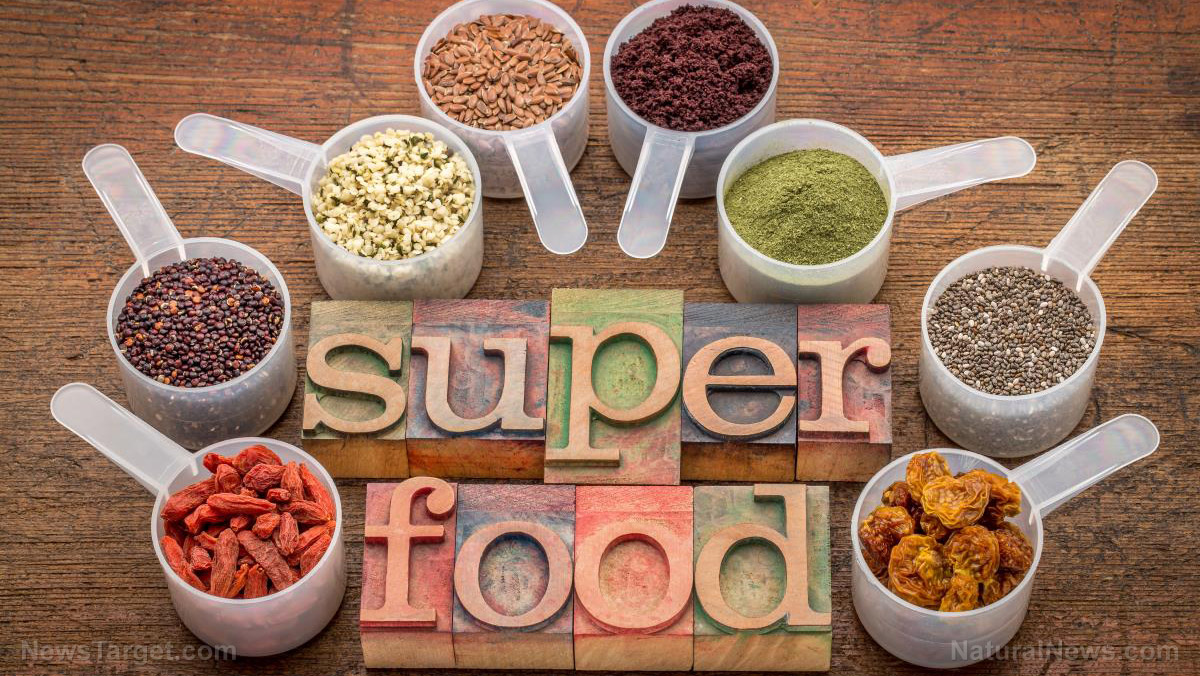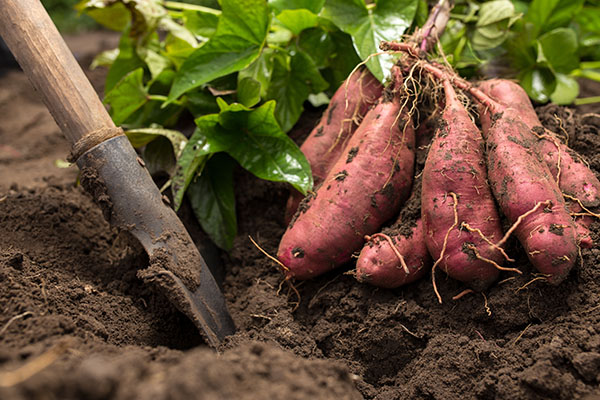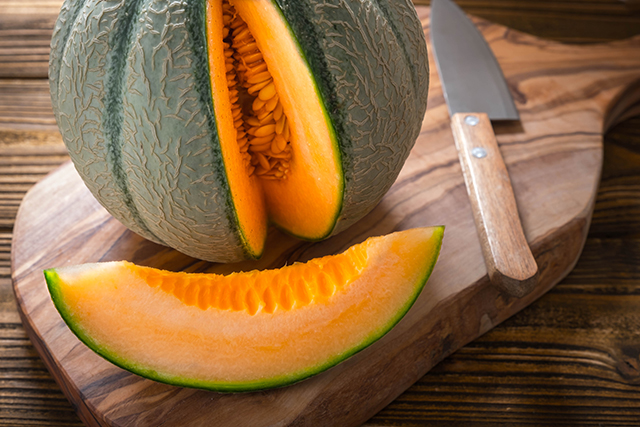Is eating chili peppers the key to a longer life? Studies link chili consumption to lower risk of dying from heart disease, cancer
12/13/2023 / By Evangelyn Rodriguez

The fruits of the Capsicum annuum plant, commonly known as red peppers or chili peppers, are one of the most widely used spices in modern cuisine. Famed for their spicy, hot taste that can instantly elevate the flavor of any dish, chili peppers are enjoyed globally and have become a staple of diets in Africa, Asia, some parts of Europe, the Pacific Islands and North and South America.
Chili peppers are native to the Americas but are now cultivated in warm regions around the world. They belong to the nightshade family, which includes popular vegetables like eggplants, potatoes and tomatoes, and medicinal herbs like mandrakes, goji berries and jimsonweed. Many varieties of chili peppers exist, some of which, like cayenne, jalapenos, Thai pepper, tabasco and habaneros, are well-known for their heat.
Aside from their spiciness, chili peppers boast an abundance of essential nutrients and beneficial phytonutrients. According to studies, chili peppers are a great source of vitamins A, B, C and E, and minerals like manganese, potassium, calcium, iron and molybdenum. Chili peppers also contain plenty of bioactive components, such as polyphenols, flavonoids, quercetin and limonene, that give them antioxidant, antimicrobial, anti-obesity and anti-inflammatory properties.
But the most remarkable property associated with chili peppers is their ability to promote longevity. In several cohort studies, frequent consumption of chili peppers has been associated with a significantly reduced risk of all-cause mortality across different demographics. A meta-analysis of four such studies found that aside from all-cause mortality, consumption of chili peppers also lowers cardiovascular disease (CVD)-specific and cancer-specific mortalities. (Related: Eating chili regularly may make you live longer.)
Chili peppers may help you live longer
The latest meta-analysis that examined the link between chili pepper consumption and all-cause and disease-specific mortality was published in 2022 in the International Journal for Vitamin and Nutrition Research. The study analyzed data from four prospective cohort studies that involved a total of 564,748 participants. Compared to those who rarely or never ate chili peppers, participants who consumed chili peppers at least once a week were found to have a lower likelihood of dying from any health-related cause, including CVD and cancer specifically.
Researchers led by Dr. Bo Xu, a cardiologist at the Cleveland Clinic’s Heart, Vascular & Thoracic Institute in Ohio, presented similar preliminary findings at the American Heart Association’s Scientific Sessions 2020 in Dallas, Texas. Xu and his team screened over 4,000 studies from five leading global health databases to analyze the possible effects of chili pepper consumption on the lifespan of humans.
The researchers compared the health and dietary records of more than 570,000 individuals from China, Iran, Italy and the U.S. who had varying frequencies of chili pepper intake. Their analysis revealed that, compared to people who rarely or never ate chili peppers, those who ate chilis had a 26 percent relative reduction in CVD-specific mortality, a 23 percent relative reduction in cancer-specific mortality and a 25 percent relative reduction in all-cause mortality. However, Xu said that more studies are needed to confirm their findings and shed light on the mechanisms behind chili peppers’ longevity-promoting effects.
Chili peppers are also a staple of the traditional Mediterranean diet, which has also been linked to increased longevity and reduced mortality. To investigate the association between chili pepper consumption and the risk of death, a group of Italian researchers looked at the dietary patterns of a large population (22,811) of Mediterranean adults. The median follow-up for the study was 8.2 years. (Related: Improve your well-being and boost longevity with the Blue Zones diet.)
The researchers found that regular consumption of chili peppers is associated with a lower risk of CVD-specific death and death from various causes. This reduction was independent of CVD risk factors and adherence to a Mediterranean diet. Regular consumption of chili peppers was also found to be inversely associated with ischemic heart disease-specific and cerebrovascular disease-specific mortality – meaning the higher your intake of chili peppers, the lower your risk of dying from these conditions. Both ischemic heart disease and cerebrovascular disease are caused by reduced blood flow due to arterial blockage or narrowing.
An earlier study also linked chili pepper consumption to a lower risk of dying from vascular disease. Researchers from the University of Vermont College of Medicine (Larner) used data from the National Health and Nutritional Examination Survey (NHANES) III, a representative sample of non-institutionalized adults in the U.S., to study the association between consumption of chili peppers and mortality. The study involved more than 16,000 participants who were at least 18 years of age.
Compared to participants who didn’t eat chili peppers, those who did had a lower risk of death from all causes, as well as a 13 percent reduction in the instantaneous hazard of death – meaning, the probability of death occurring at a particular point in time. The participants also had a lower risk of dying from conditions that affect blood vessel functions. Because of these findings, the study concluded that chili peppers are a beneficial addition to a healthy diet, especially one aimed at promoting optimal health and preventing serious diseases like CVD.
Other health benefits of chili peppers
Chili peppers are known to provide some unique benefits. For instance, chili peppers have been shown to help relieve pain, thanks to their main active component, capsaicin. Capsaicin can desensitize your pain receptors, which over time helps improve your tolerance to chili pepper’s burning flavor. At the same time, capsaicin makes your pain receptors insensitive to other types of pain mainly by reducing Substance P, a chemical that transmits pain signals in your nerves.
Capsaicin in chili peppers is also a natural appetite suppressant that can help you lose weight naturally. According to studies, capsaicin is capable of inhibiting adipogenesis (the accumulation of fat tissue), inducing thermogenesis (fat burning) and increasing satiety, making it a promising anti-obesity agent. Capsaicin has also been reported to ameliorate insulin resistance – a feature of both diabetes and obesity.
According to a study published in the journal Molecular Nutrition & Food Research, capsaicin in chili peppers can improve glucose tolerance and insulin sensitivity by decreasing gluconeogenesis (the synthesis of new glucose from non-carbohydrate precursors) and promoting glycogenesis (the process of storing excess glucose) in the liver.
Chili pepper is a powerful spice that offers a wealth of essential nutrients and health benefits. Add this incredible superfood to your diet to improve your overall health, prevent chronic disease and prolong your life.
Visit Longevity.news for more stories about foods that can help you live longer.
Watch this video to learn about the natural process of autophagy and how it can promote longevity.
This video is from the Holistic Herbalist channel on Brighteon.com.
More related stories:
Chili pepper, a traditional remedy for rheumatoid arthritis.
Looking for a spicy fix for pain while boosting your heart and immune system? Try cayenne pepper.
Prevent cancer by eating more ginger and chili pepper.
Study shows compounds in ancient herbal medicine can help increase longevity.
STUDY: Taurine is a key nutrient that promotes longevity and good overall health.
Sources include:
Submit a correction >>
Tagged Under:
anti-aging, chili peppers, food is medicine, food science, fruits, functional foods, health science, heart disease, heart health, longevity, natural health, natural medicine, organics, phytonutrients, prevention, research
This article may contain statements that reflect the opinion of the author
RECENT NEWS & ARTICLES
COPYRIGHT © 2017 FOOD SCIENCE NEWS




















